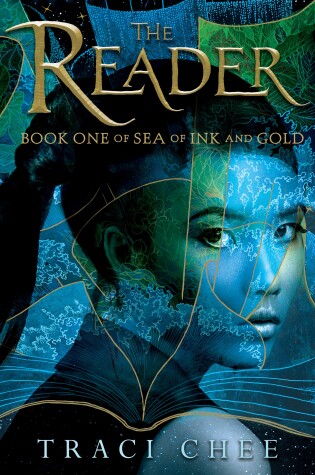Reviewed by Briana @ Pages Unbound on
In the first place, The Reader does not fully explore what it means to be a world without books, which I think is a disservice to oral culture. The very first page mentions this culture with seeming reverence. Chee writes, “They remembered their histories with their voices and bodies, repeating them over and over until the stories became part of them, and the legends were as real as their own tongues and lungs and hearts.” This passing is moving, but basically that’s all the audience gets. There are, remarkably, practically no storytellers in this book whom Sefia ever encounters. A few characters are said to be thirsty for stories, but the references are always in passing. There are also vague references to the fact the “news boys” stand and shout the news in the market rather than selling papers, or to the fact that shop signs use symbols rather than words. Yet Chee, in her quest to exalt the book and the written word, missed a profound opportunity to actually portray an oral culture.
Despite this, the message that books are marvelous is actually less heavy-handed than I initially featured. However, I did think it could have been more complex. Chee tries to access the feelings one would have upon first discovering words and reading, but glosses over the moment too quickly to do it justice. Sefia is obsessed with the first line she ever reads “This is a book,” which I think it highly relatable and realistic. However, the follow-up is simplistic. The question is “Is anything with words written on it a book?” To which I want to just say “no” and mutter about conflating texts and books and such. And then there’s a lot of heavy-handed stuff about books containing all the knowledge in the world and knowledge being power, etc.
This didn’t overly trouble me as I was reading the novel because I was really invested in the characters and the adventure of the plot. Sefia is a strong protagonist, confident and skilled, but with enough flaws to make her believable. She’s rounded out by companions with complementary skills, which I thought was great. I loved following her on her adventures as she ran from murderers, tried to track down her kidnapped aunt, and looked for answers about her parents and the mysterious book they left behind. The fact that Sefia was carrying a book at all was irrelevant to me. I think I would have liked the novel just as much if she’d been carrying an enchanted brick or a magic block of cheese.
Readers, really, get a little bit of everything that makes fantasy great. Feuding kingdoms. Secret societies. Assassins. Pirates. Mysteries. Romance. I guess the book was supposed to be deep, but mostly I just thought it was fun. I feel obliged to drop at least a start off the rating because I do think Chee missed her goal in writing a “book about books.” Still, despite the fact I have no idea what the second book is going to be about (Sefia has more questions than answers at this point) I do know that I want to read it. And since I drop so many series after reading only book one, that’s pretty high praise from me.
Reading updates
- Started reading
- 18 December, 2016: Finished reading
- 18 December, 2016: Reviewed
